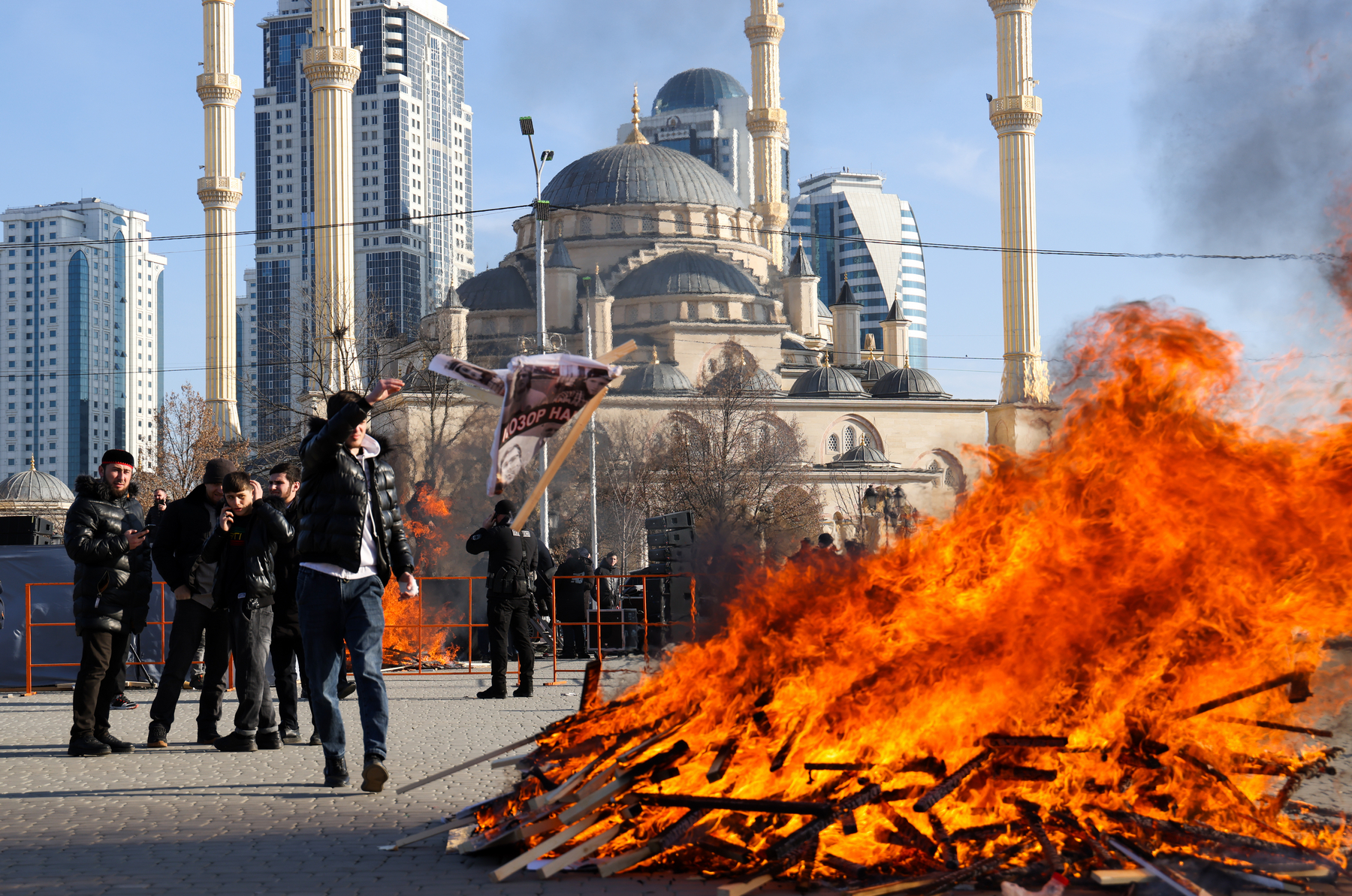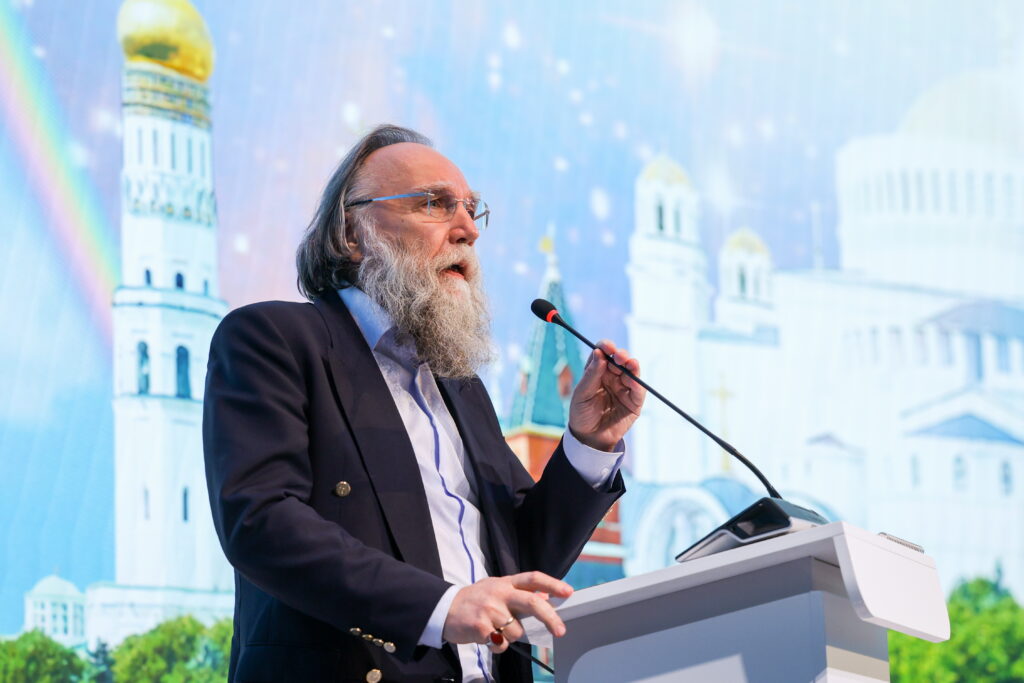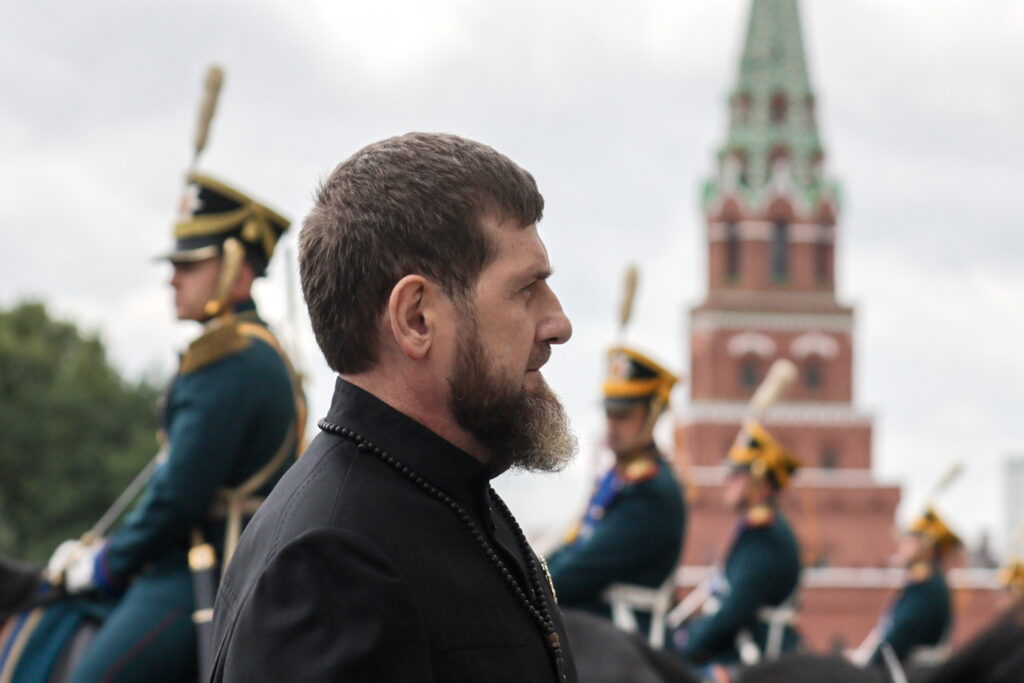The transition into the new year has been a busy one for Chechen strongman Ramzan Kadyrov. His agenda has been suffused with calls for a Chechen invasion of Ukraine; resurgent claims against Ingushetia; and an end of the year kidnapping campaign targeting dissidents’ families. While this may sound like business as usual for Kadyrov, these actions form a reactionary policy of distraction and repression. But what are they in reaction to?
Taking a closer look at Chechen resistance illuminates Kadyrov’s motivations. Domestically, socioeconomic conditions have become a sufficient grievance to create a physical protest in the center of Grozny. Abroad, the diasporic opposition appears to be strengthening ties and achieving victories from afar. Accordingly, the repressive centripetal forces of the state rise to meet the strengthening centrifugal power of the opposition.
The price for protest
On December 10, dozens of women processed out of the «Berkat» market in the heart of Grozny, protesting the price to rent a stall. Any sizable protest in the North Caucasus is a rarity, not least in Chechnya. However, socioeconomic concerns are now proving a sufficient grievance.
News of the Berkat protest leaked via the «1ADAT» opposition movement, a point surely not lost on the Kadyrov regime. The movement emerged in April 2020 on Telegram seeking to expose the violence and corruption of the Kadyrov regime. Two days after alerting the world of the protest, 1ADAT announced the completion of their first month of providing food assistance to families. Comparatively, this tactic was highly effective for the Black Panther Party in California in the 1970s—it notably helped secure free school breakfasts for kids across the United States. The play worked similarly in Chechnya, pressuring the state into action. By the month’s end, the Kadyrov regime was publicly buying food for its subjects.
This pattern indicates that socioeconomic distress in the republic is being viewed as a mobilization opportunity by the authorities, the opposition, and the public.
After all, there is a positive correlation between poverty and protest sentiment in Russia, with «mass protest [being] possible only once there is nothing left to lose.» Considering Chechnya’s ranking among regions for standard of living has fallen from 68th to 74th from 2017 to 2020 and the republic is consistently a leader in unemployment rates, «nothing left to lose» seems an apt description for current circumstances in the republic.
This economic deterioration will almost certainly continue. Moscow is in a tight spot trying to negotiate between spurring economic development and maintaining the governance status quo in the North Caucasus. A particular lament here from both federal and regional authorities is the lack of private investment, an absence often attributed to the regime’s corrupt financial practices. Chechnya’s federal subsidies have grown over the past few years, thanks to Kadyrov’s insistence; but they are still only half of their total a decade ago. They are less than half of what Dagestan receives. Kadyrov recently highlighted his republic’s complete financial dependence on Moscow, trying to increase pressure publicly on the budget negotiations taking place behind closed doors.
Victories from afar
While domestic conditions have degraded, Kadyrov has prioritized control over all Chechens regardless of where they reside. This policy has long been successful, as the regime has intimidated and assassinated without check across Europe and the Middle East. However, this extended arm leaves itself open to being slapped down or cut off—which European states have been unable or unwilling to do. The diasporic opposition has been more successful in this endeavor.
Sweden-based Chechen human rights organization VAYFOND has released multiple reports exposing the Kadyrov regime’s supporters in Europe (evrokadyrovtsy). According to a European intelligence report, Tumso Abdurakhmanov’s assassination attempt was orchestrated by Kadyrov. Turkey-based dissident Khasan Khalitov, alongside 1ADAT and the «Security Turkey» Telegram channel, are responsible for starting the deterioration of Kadyrov-Turkey relations. The diplomatic spat—preceded by the assassination of a former member of the Akhmat Kadyrov police regiment in Istanbul—emerged when Turkey arrested a Russian assassination ring, with the help of the local Chechen diaspora. Kadyrov then traveled to Turkey to secure their release, was refused, and later exposed as the organizer of the plot.
This last event is perhaps the most significant. Turkey has historically been a playground for anti-Kadyrov forces and kadyrovtsy. The country has served as an arena for assassinations, a sought-after safe haven for generations of dissidents and refugees, and as a logistical center for Chechen foreign fighters. While this seems paradoxical—after all, how can a country be both a safe haven and an assassination arena—the presence of foreign fighters drew the Chechen regime’s focus away from less belligerent dissidents for several years, and the Turkish state has been less prejudicial toward the diaspora than some European states. For example, France frequently deports Chechens despite proven risks of torture or death upon return, in contrast to the reification of Chechnya’s independence-maker Dzhokhar Dudaev in Turkey. Of course, either state is still safer than living in Chechnya itself. Turkey’s public exposure of the assassin ring, and its connection to Kadyrov, is a marked policy change; security services’ cooperation with the local Chechen diaspora to locate kadyrovtsy in Turkey is also new. With this relationship degrading, the Chechen leader loses a cornerstone in his foreign operations, making Turkey safer for the diaspora. Forcing a wedge between Turkey and Kadyrov is also significant as it is perhaps the clearest case of collaboration within the diasporic opposition, achieving major results.
Counterproductive repression
The above opposition victories, among which the Berkat protest can be counted, and the everyday harassment and undermining of the regime by these same individuals and groups, were the direct reason for the mass abduction of dissidents’ relatives. The family of Mansur Sadulaev, founder of VAYFOND, were kidnapped. Both Abdurakhmanov brothers have long-standing personal feuds with the Chechen leadership troika; their relatives were released on January 17. Khasan Khalitov’s brother and sister are still in the kadyrovtsy’s hands, allegedly on the order of Magomed Daudov. The mother of «Committee Against Torture» lawyer Abubakar Yangulbaev, who was briefly arrested in December, was violently abducted from Nizhny Novgorod. However, his legal work is not the cause of Kadyrov’s focus on his family: he, along with his brothers, Ibragim and Baisangur, are accused by Russian and Chechen authorities of leading 1ADAT—at the behest of Western governments no less. Ibragim now has a federal arrest warrant out for «justifying terrorism.» Despite 1ADAT disputing this claim, Novaya Gazeta’s Elena Milashina has revealed that it was indeed Ibragim who founded the Telegram channel.
The continued targeting of the Khalitovs and Yangulbaevs, transitioning from extended family to immediate relatives, and initiating criminal cases with long sentences, indicates that the regime’s greatest concerns are 1ADAT and its collaborators.
Despite Kadyrov’s attempts to halt these individuals’ work, his actions have only served to strengthen the opposition network. All the above dissidents have been actively spreading each other’s stories across Telegram channels, with Abubakar Yangulbaev even creating a channel to share information, as well as via other social media platforms. They also organized protests in Strasbourg, Oslo, Stockholm and Munich—after which opposition leaders met and settled any disputes.
Snowballing repression
The horizontal cracks in his rule’s foundation are at their widest thus far, as societal discontent moves, little by little, from the private to public sphere. Kadyrov will respond accordingly. It is likely there will be more violence, a trend already evidenced by the violent kidnapping of Zarema Musaeva from Nizhny Novgorod. Kadyrov has since gone from proposing jailing the entire family to killing them, with Duma MP Adam Delimkhanov calling for their beheading, a call echoed by the rank-and-file kadyrovtsy. Declarations for revenge have also spread from the security services to the Yangulbaev relatives still in Chechnya.
Seeing as the current variables in this scenario—socioeconomic deterioration, resistance, Kadyrov’s ability to reach dissidents’ relatives—will remain on current trends, the situation will only get worse from here. A feedback loop forms as increased repression causes more resistance, which then leads to more repression, and so forth.










